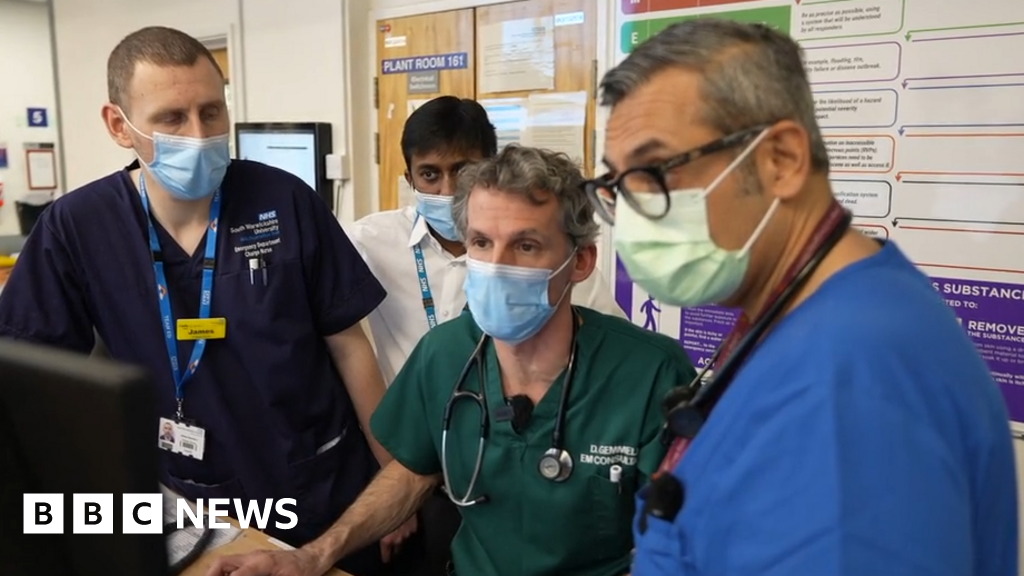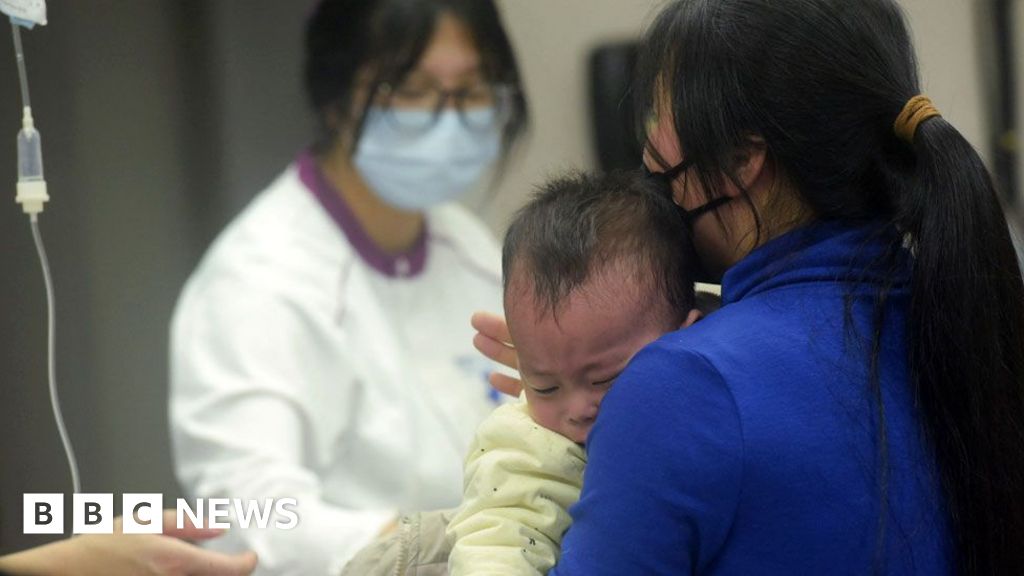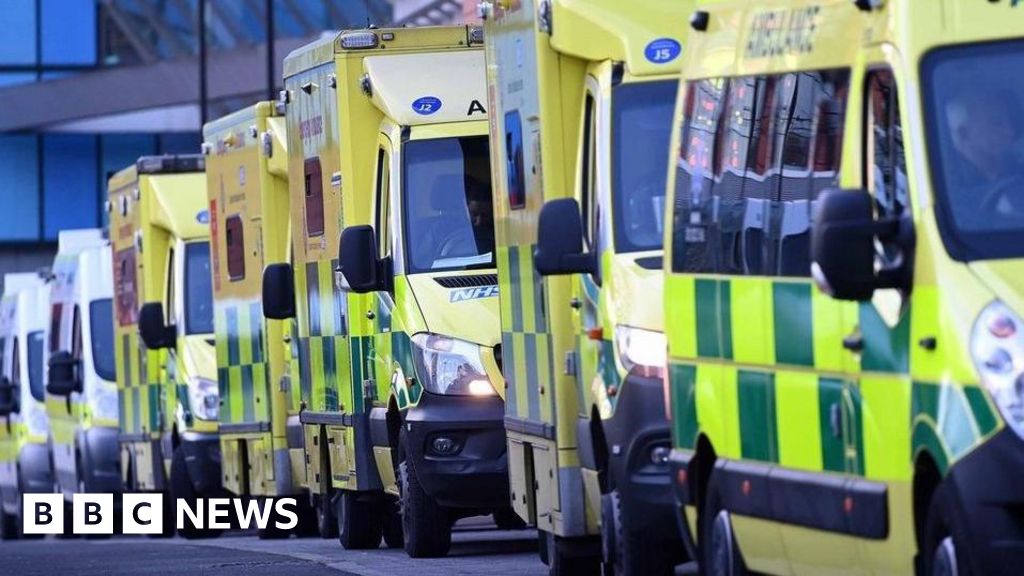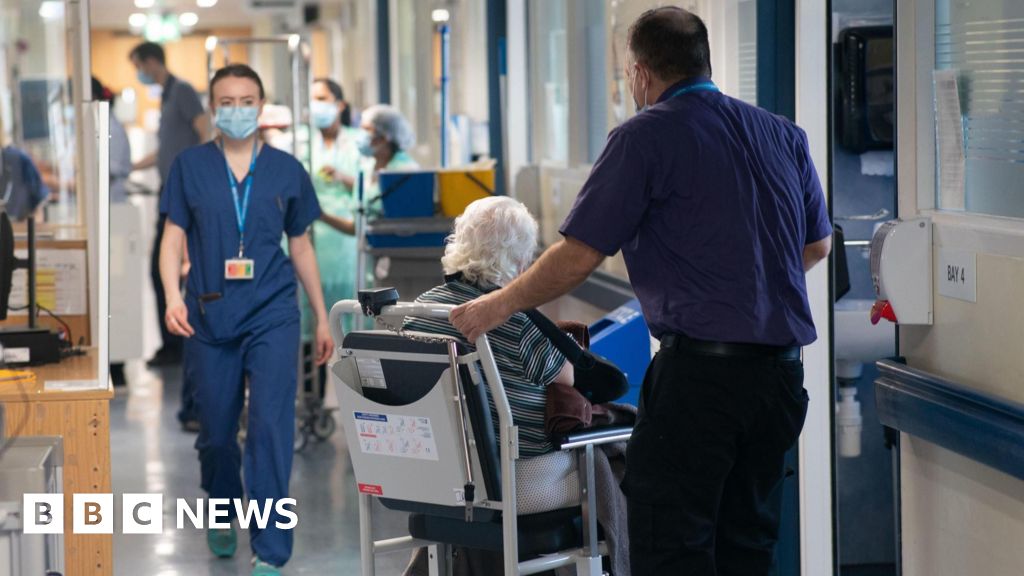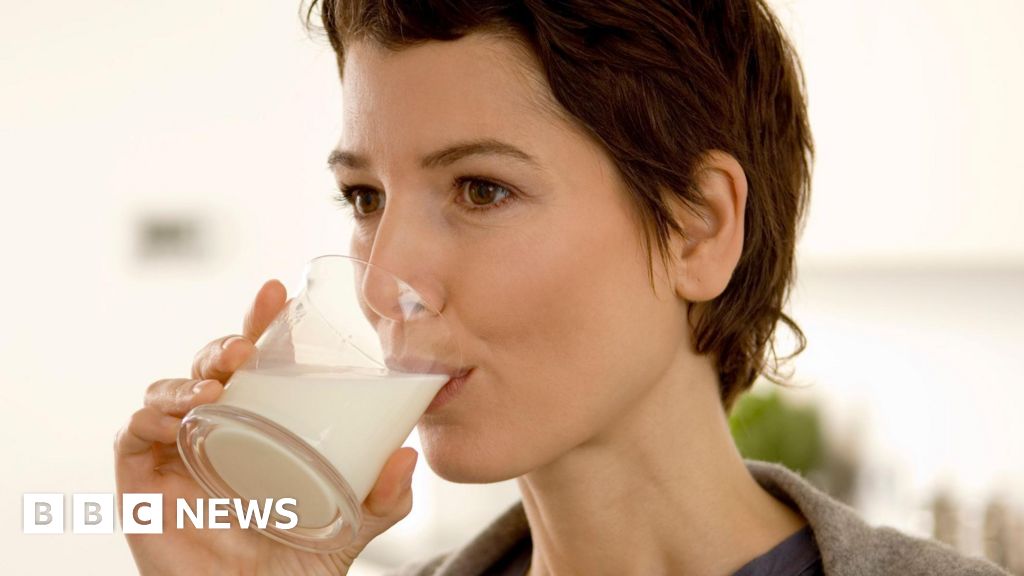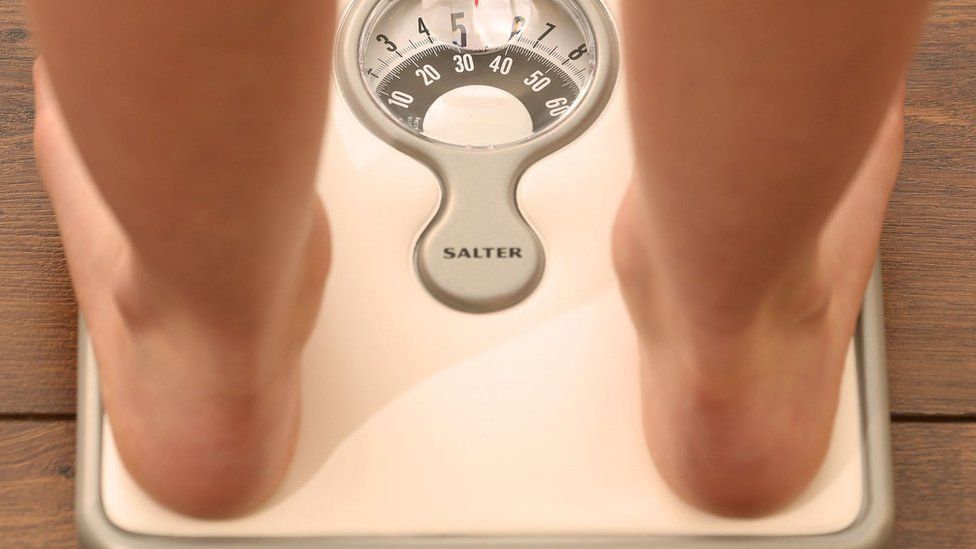 Image source, PA Media
Image source, PA Media
By Aurelia Foster
Health reporter
Tens of thousands of children who became overweight or obese during the pandemic could face "lifelong health consequences", researchers say.
Obesity rates rose sharply among 10- and 11-year-olds in England and have not returned to pre-pandemic levels.
Measures aimed at children under five are now needed to tackle childhood obesity, the researchers warn.
The government said it was taking "strong action" to encourage healthier food choices.
A prolonged absence from school, a lack of physical activity and unhealthy eating habits have been blamed for rising obesity levels in children during periods of Covid restrictions.
Between 2019-2020 and 2020-2021, the proportion of overweight and obese Year 6 primary school children, aged between 10 and 11, went from 35.2% to 40.9%, with people from deprived areas disproportionately affected.
Researchers used BMI data from the government's National Child Measurement Programme, which weighs and measures about one million Year 6 pupils annually in England.
The number of overweight and obese pupils of that age decreased the following year, but it was still higher than before the Covid lockdowns.
This increase represents a cohort of an additional 56,000 children, researchers from the NIHR Southampton Biomedical Research Centre and University of Southampton say - based on this snapshot.
Based on existing data linking childhood obesity to adolescent and adult obesity, they conclude that many of those children are at greater risk of developing conditions such as diabetes, strokes, arthritis and some types of cancer.
"What the data shows is that the pandemic is likely to have lasting effects on physical health in the children," Prof Keith Godfrey, the report's lead author, said.
There was a larger increase in weight gain among Reception pupils aged four and five, but that has now reverted to its previous level.
Prof Godfrey said this was likely to be because of the Year 6 pupils' more advanced "developmental stage".
"In the older children, the dietary and physical activity habits that were developed during the pandemic became more embedded and did not revert back," he said.
Early intervention
The researchers say measures to tackle childhood obesity aimed at pre-school children are needed and are likely to be more effective than measures focused on older children.
"At the moment the interventions largely centre around a sugar tax, which has probably been effective to a degree, but it needs a much wider engagement."
Changes to certain food placements in shops, a ban on fast food stores next to schools, and increased priority of physical activity in nurseries and pre-schools should be introduced into new policies, Prof Godfrey told the BBC.
He said government funding was needed to narrow the gap in health outcomes between advantaged and disadvantaged people.
"Those from less advantaged communities have less access to healthy foods and less access to opportunities for physical activity. It doesn't come down to personal choice or to parenting preferences or behaviours," he said.
Image source, Southampton University
Image caption,The Early LifeLab is a programme helping to tackle obesity among primary school children, run by NIHR Southampton Biomedical Research Centre and University of Southampton
Sara Stanner, science director at the British Nutrition Foundation, said childhood obesity rates were already "worryingly high" before the pandemic and that this study "underlines the need for action, particularly in areas of deprivation".
"With many children starting school already overweight, it's important that we intervene in early life.
"Tackling obesity needs action across many areas of our society, but supporting children's health in the early years should be a key part of any approach," Ms Stanner said.
The Department for Health and Social Care said it was trying to tackle obesity across all socio economic groups.
A spokesperson said: "We require labelling on pre-packed foods to set out a variety of information to aid shoppers, including a list of ingredients and nutritional data, and we have introduced legislation to restrict the placement of foods high in fat, sugar or salt in supermarkets."
It said it also runs a Healthy Start scheme, encouraging healthy diets for families from lower-income households.
Cost to society
The researchers also used economic data to conclude additional people living with obesity as a result of the pandemic could eventually cost the UK economy more than £8bn in total, including £800m in healthcare costs.
"Given that the current epidemic of childhood obesity has yet to completely play out into adulthood, there are concerns that productivity actually might worsen as a consequence of this rise," Prof Godfrey said.
More than 90% of children in the two age groups in England are measured and weighed in the National Child Measurement Programme each year, which researchers say is representative of the population.
Are you affected by the issues raised in this story? Share your experiences by emailing haveyoursay@bbc.co.uk.
Please include a contact number if you are willing to speak to a BBC journalist. You can also get in touch in the following ways:
If you are reading this page and can't see the form you will need to visit the mobile version of the BBC website to submit your question or comment or you can email us at HaveYourSay@bbc.co.uk. Please include your name, age and location with any submission.
Related Internet Links
The BBC is not responsible for the content of external sites.
 (1).png)
 11 months ago
16
11 months ago
16


